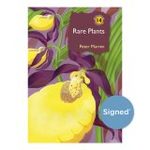![Duck Walk Duck Walk]()
Click to have a closer look
About this book
Customer reviews
Biography
Related titles
About this book
In fall 2016, lifelong birdwatcher, naturalist, and esteemed Texas artist Margie Crisp decided to take up a shotgun and start hunting ducks.
Few nature enthusiasts understand the role that the hunting industry plays in the conservation of wildlands and wildlife – protecting far more critical habitat than birdwatchers do. With many bird species in a precipitous decline, duck and geese populations continue to rise steadily year after year. Why? Because of the money waterfowl hunters spend on licenses, firearms, and ammunition, or donate to nonprofit conservation organizations.
Here, Crisp goes beyond birdwatching to challenge her notions about hunting. Could duck hunters be considered conservationists? Could she overcome a life-long aversion to guns and learn to shoot birds? And could doing so help the conservation of habitats for ducks and other migratory bird species? In writing about her experiences, Crisp explores these questions and illustrates to both communities – hunters and naturalists – that one woman can be a birdwatcher, a bird hunter, and above all, a conservationist devoted to preserving habitat for birds and other wildlife.
Readers journey with the author as she learns to hunt – to experience the emotional impacts of killing, cleaning, cooking and eating birds. First-hand accounts are seamlessly integrated with information about conservation history as well as interviews with hunters, biologists, and birdwatchers. Along the Central Flyway from the Texas coast to Canada, this revealing personal narrative traces hunting and birdwatching trips, and even a solo road trip following the birds' migration, all through the eye of an artist whose words and drawings bring her journey to life.
Customer Reviews
Biography
Margie Crisp is a writer and nationally exhibited artist whose work can be found in private and public collections in the United States, Mexico, and throughout Texas. She is the author of River of Contrasts: The Texas Colorado and The Nueces River: Río Escondido. She lives and works near Elgin, Texas.



































